
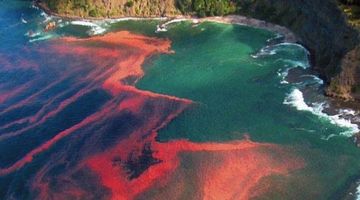
Seaweek is New Zealand’s annual national week about the sea. It is coordinated by the Sir Peter Blake Marine Education and Recreation Centre (MERC) and includes a wide range of events ...
READ MORE
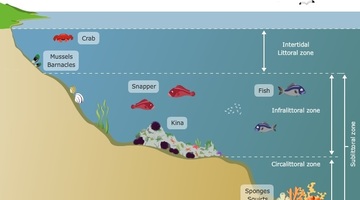
The rocky shore is a popular topic in primary school science. Below are some Science Learning Hub resources for primary teachers related to the rocky shore in the Living World strand of the New ...
READ MORE
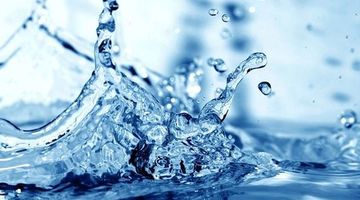
About 70% of Earth’s surface is covered by water. It is found just about everywhere and is the only naturally occurring substance on Earth existing in solid, liquid and gas states. Water is ...
READ MORE

Water is the most abundant and most frequently overlooked component of food. The water content of solid foods is variable, ranging from ‘wet’ foods such as fruits and vegetables at 80–95% water ...
READ MORE
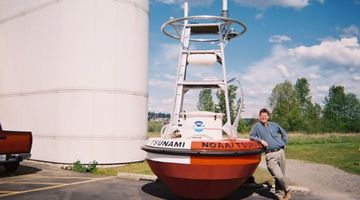
Collecting data is a crucial part of scientific inquiry. To study waves and the ocean sea level, scientists usually gather data through the use of instruments. They collect information about the ...
READ MORE

Feeding relationships are often shown as simple food chains – in reality, these relationships are much more complex, and the term ‘food web’ more accurately shows the links between producers ...
READ MORE

in this activity, a class or group of students create several soundscapes to gain a greater appreciation of how background sound differs from one geographical setting to another. By the end of ...
READ MORE
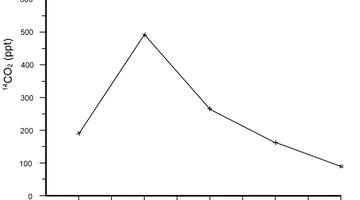
In this activity, students interpret graphs from a long-term study of carbon dioxide in the atmosphere of New Zealand. They explore how the interval between samples affects the conclusions we are ...
READ MORE
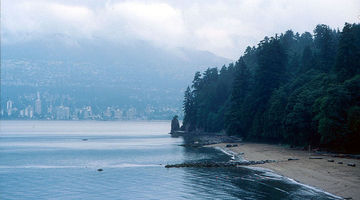
In this activity, students observe the processes of evaporation and precipitation by creating a model that simulates the water cycle. By the end of this activity, students should be able to ...
READ MORE
In this video, Associate Professor Stephen Wing, from the University of Otago, talks about how our understanding of food webs has changed over the years. We now have a much better understanding ...
READ MORE
Postdoctoral fellow at Auckland University’s Leigh Marine Lab Dr Craig Radford explains how fish use sound to navigate towards reef habitats. He talks about the distances that sound can travel ...
READ MORE
Prof John Montgomery and Dr Craig Radford talk about why they conduct research on reef noise. They discuss the potential for their findings and how modern noises can interfere with the settlement ...
READ MORE
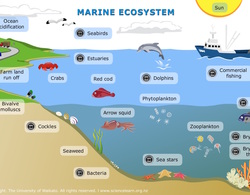
Explore this interactive diagram to learn more about life in the sea. Click on the different labels to view short video clips or images about different parts of the marine ecosystem. Select here ...
READ MORE
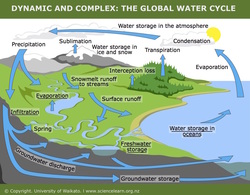
Water in the Earth system is influencing all aspects of life on Earth. Pathways, storage, transfers and transformations have an effect on the global climate and human welfare. Within this ...
READ MORE
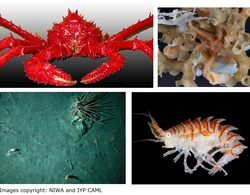
This short slideshow shows some of the animals found in the Antarctic benthic zone. Use the Slideshow menu for further options, including view full screen, and go here for the download option.
READ MORE